Abarth 500 595 695 vs Mercedes EQS – Which model is better for everyday use?
Both models have their strengths – but which one suits you more?
Compare performance, efficiency, price and space directly: Abarth 500 595 695 or Mercedes EQS?
Costs and Efficiency:
When it comes to price and running costs, the biggest differences usually appear. This is often where you see which car fits your budget better in the long run.
Abarth 500 595 695 has a clearly advantage in terms of price – it starts at 32600 £, while the Mercedes EQS costs 93900 £. That’s a price difference of around 61338 £.
In terms of energy consumption, the advantage goes to the Mercedes EQS: with 16.50 kWh per 100 km, it’s barely noticeable more efficient than the Abarth 500 595 695 with 17.10 kWh. That’s a difference of about 0.60 kWh.
As for range, the Mercedes EQS performs significantly better – achieving up to 816 km, about 551 km more than the Abarth 500 595 695.
Engine and Performance:
Under the bonnet, it becomes clear which model is tuned for sportiness and which one takes the lead when you hit the accelerator.
When it comes to engine power, the Mercedes EQS has a clearly edge – offering 544 HP compared to 155 HP. That’s roughly 389 HP more horsepower.
In acceleration from 0 to 100 km/h, the Mercedes EQS is clearly quicker – completing the sprint in 4.40 s, while the Abarth 500 595 695 takes 7 s. That’s about 2.60 s faster.
In terms of top speed, the Mercedes EQS performs noticeable better – reaching 210 km/h, while the Abarth 500 595 695 tops out at 155 km/h. The difference is around 55 km/h.
There’s also a difference in torque: Mercedes EQS pulls decisively stronger with 858 Nm compared to 235 Nm. That’s about 623 Nm difference.
Space and Everyday Use:
Beyond pure performance, interior space and usability matter most in daily life. This is where you see which car is more practical and versatile.
Seats: Mercedes EQS offers a bit more seating capacity – 5 vs 4.
In curb weight, Abarth 500 595 695 is significantly lighter – 1410 kg compared to 2545 kg. The difference is around 1135 kg.
In terms of boot space, the Mercedes EQS offers significantly more room – 610 L compared to 185 L. That’s a difference of about 425 L.
In maximum load capacity, the Mercedes EQS performs decisively better – up to 1770 L, which is about 1220 L more than the Abarth 500 595 695.
When it comes to payload, Mercedes EQS distinct takes the win – 565 kg compared to 385 kg. That’s a difference of about 180 kg.
Who wins the race?
The Mercedes EQS proves to be leaves the rival little chance and therefore becomes our DriveDuel Champion!
Mercedes EQS is the better all-rounder in this comparison.
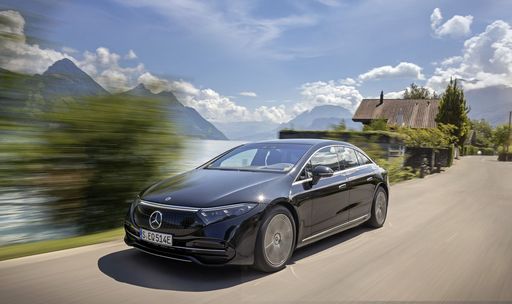 @ Mercedes-Benz Group Media
@ Mercedes-Benz Group Media
Mercedes EQS
Abarth 500 595 695
The Abarth 500, particularly in its 595 and 695 renditions, captures the spirit of Italian motoring with its compact yet aggressive design. Known for its lively performance and distinctive styling, this little powerhouse is a joy to drive, offering an engaging experience that appeals to enthusiasts. With its rich motorsport heritage, the Abarth 500 embodies the essence of fun and excitement on both the streets and the race track.
details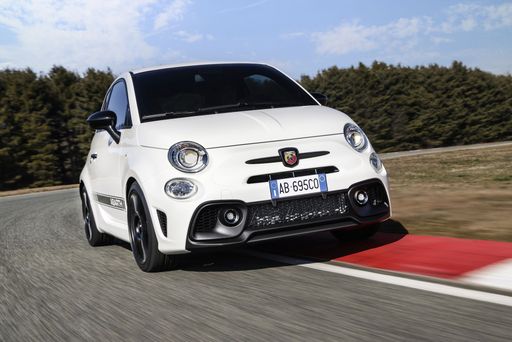 @ Abarth / Stellantis Media
@ Abarth / Stellantis Media
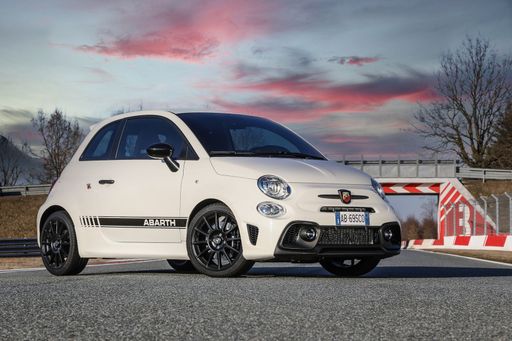 @ Abarth / Stellantis Media
@ Abarth / Stellantis Media
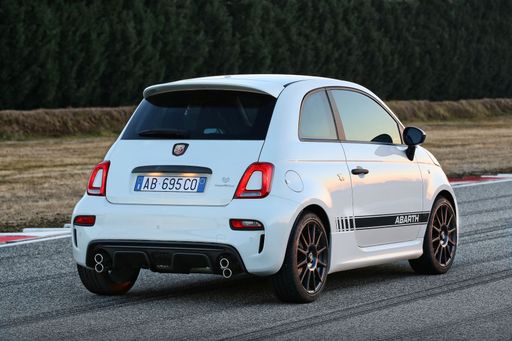 @ Abarth / Stellantis Media
@ Abarth / Stellantis Media
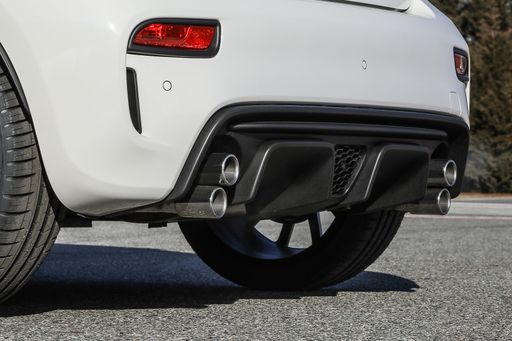 @ Abarth / Stellantis Media
@ Abarth / Stellantis Media
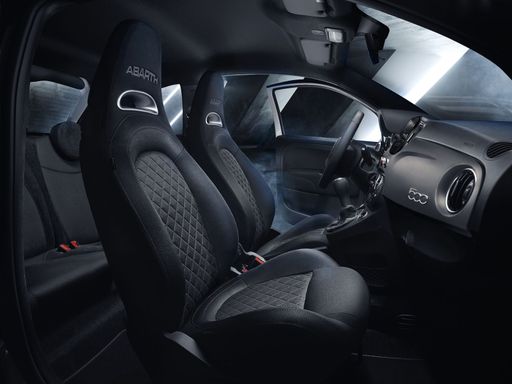 @ Abarth / Stellantis Media
@ Abarth / Stellantis Media
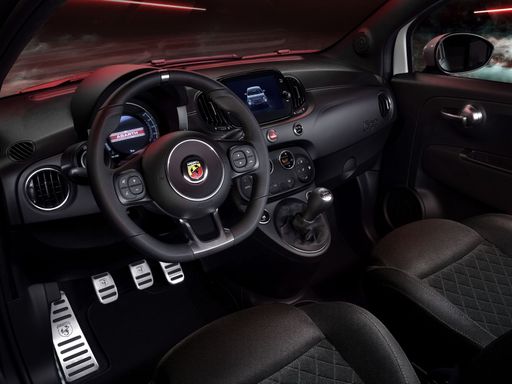 @ Abarth / Stellantis Media
@ Abarth / Stellantis Media
Mercedes EQS
The Mercedes-Benz EQS redefines luxury in the realm of electric vehicles, combining exceptional comfort with cutting-edge technology. Its sleek and aerodynamic design is a testament to both elegance and efficiency, setting new standards for the brand. Inside, the EQS offers a serene and spacious cabin equipped with the latest advancements, ensuring a refined driving experience.
details @ Mercedes-Benz Group Media
@ Mercedes-Benz Group Media
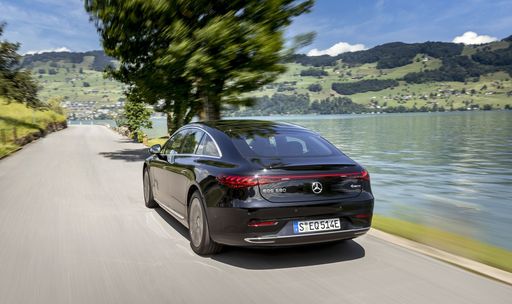 @ Mercedes-Benz Group Media
@ Mercedes-Benz Group Media
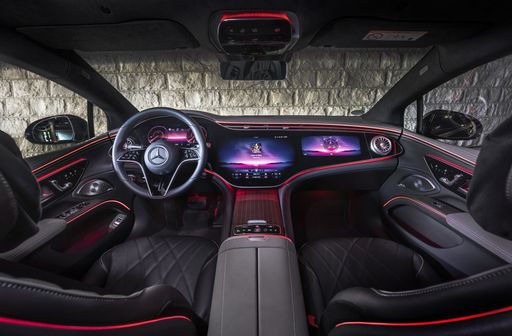 @ Mercedes-Benz Group Media
@ Mercedes-Benz Group Media
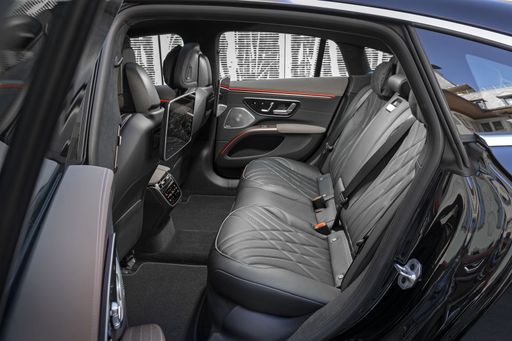 @ Mercedes-Benz Group Media
@ Mercedes-Benz Group Media
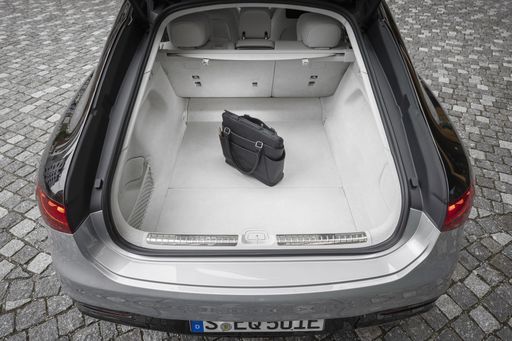 @ Mercedes-Benz Group Media
@ Mercedes-Benz Group Media
 @ Abarth / Stellantis Media
@ Abarth / Stellantis Media
|
 @ Mercedes-Benz Group Media
@ Mercedes-Benz Group Media
|
|
|
|
Costs and Consumption |
|
|---|---|
|
Price
32600 - 39400 £
|
Price
93900 - 123500 £
|
|
Consumption L/100km
-
|
Consumption L/100km
-
|
|
Consumption kWh/100km
17.1 - 18.8 kWh
|
Consumption kWh/100km
16.5 - 17.2 kWh
|
|
Electric Range
242 - 265 km
|
Electric Range
790 - 816 km
|
|
Battery Capacity
37.80 kWh
|
Battery Capacity
118 kWh
|
|
co2
0 g/km
|
co2
0 g/km
|
|
Fuel tank capacity
-
|
Fuel tank capacity
-
|
Dimensions and Body |
|
|---|---|
|
Body Type
Hatchback
|
Body Type
Hatchback
|
|
Seats
4
|
Seats
5
|
|
Doors
3
|
Doors
5
|
|
Curb weight
1410 - 1435 kg
|
Curb weight
2545 - 2655 kg
|
|
Trunk capacity
185 L
|
Trunk capacity
610 L
|
|
Length
3673 mm
|
Length
5223 mm
|
|
Width
1682 mm
|
Width
1926 mm
|
|
Height
1518 mm
|
Height
1512 mm
|
|
Max trunk capacity
550 L
|
Max trunk capacity
1770 L
|
|
Payload
370 - 385 kg
|
Payload
550 - 565 kg
|
Engine and Performance |
|
|---|---|
|
Engine Type
Electric
|
Engine Type
Electric
|
|
Transmission
Automatic
|
Transmission
Automatic
|
|
Transmission Detail
-
|
Transmission Detail
Reduction Gearbox
|
|
Drive Type
Front-Wheel Drive
|
Drive Type
All-Wheel Drive, Rear-Wheel Drive
|
|
Power HP
155 HP
|
Power HP
360 - 544 HP
|
|
Acceleration 0-100km/h
7 s
|
Acceleration 0-100km/h
4.4 - 6.2 s
|
|
Max Speed
155 km/h
|
Max Speed
210 km/h
|
|
Torque
235 Nm
|
Torque
568 - 858 Nm
|
|
Number of Cylinders
-
|
Number of Cylinders
-
|
|
Power kW
114 kW
|
Power kW
265 - 400 kW
|
|
Engine capacity
-
|
Engine capacity
-
|
General |
|
|---|---|
|
Model Year
2023
|
Model Year
2024
|
|
CO2 Efficiency Class
A
|
CO2 Efficiency Class
A
|
|
Brand
Abarth
|
Brand
Mercedes-Benz
|
Is the Abarth 500 595 695 offered with different drivetrains?
The Abarth 500 595 695 is offered with Front-Wheel Drive.
The prices and data displayed are estimates based on German list prices and may vary by country. This information is not legally binding.
